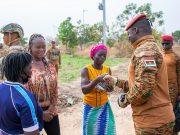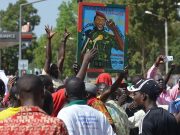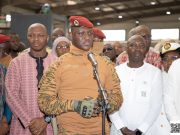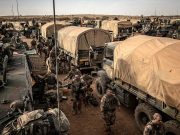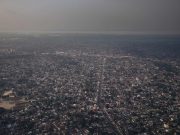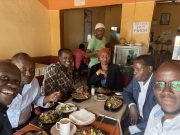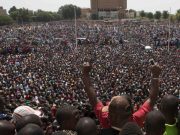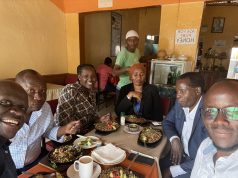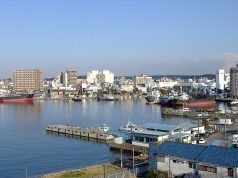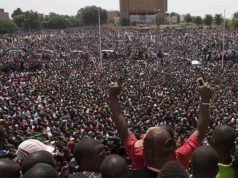The Shocking Cost of a Headline
A careless headline written in London or New York can raise Africa’s borrowing costs by billions of dollars. That is not a metaphor. It is measurable reality. Studies by Africa No Filter and Africa Practice reveal that negative stereotypes in foreign media directly inflate the price African governments pay to borrow money. Words on a page become financial chains.
Think about that for a moment. One journalist’s phrase in a distant newsroom translates into higher taxes, fewer classrooms, fewer hospital beds in Africa. This is the weight of white privilege in foreign policy.
The defaults of others cannot define our destiny. Africa must build its own defaults.
Understanding the Language of Defaults
What do I mean by defaults? Defaults are the silent settings of the global system. They are the assumptions that determine how policies are made and whose interests count. Defaults tell us what is “normal,” what is “rational,” and what is “inevitable.”
When defaults are written by others, they benefit others. When defaults are built by us, they protect us. It is that simple.
And yet for too long, Africa has lived by defaults written in Washington, Paris, London, and Brussels. Our history, our resources, our economies, and even our stories have been filtered through foreign privilege.
The defaults of others have turned Africa into a testing ground for policies, a supplier of raw materials, and a consumer of narratives. We cannot accept this any longer.
The defaults of others cannot define our destiny. Africa must build its own defaults.
The Bitter Medicine of the 1980s
Let us begin in the 1980s, when debt overwhelmed African states. Western lenders offered what they called “structural adjustment.” The World Bank and IMF prescribed austerity, privatization, and liberalization. These were not proposals. They were conditions for survival.
The results were devastating. Schools introduced fees that poor families could not afford. Hospitals collapsed under the weight of budget cuts. Food subsidies disappeared, leaving families hungry. UNICEF called it “Adjustment with a Human Face,” but the human face was gaunt, sick, and desperate.
I remember hearing mothers in Nairobi say, “We are poorer today than we were yesterday.” That was not an economic statistic. That was a cry from the soul.
The defaults of others turned African suffering into global orthodoxy. Africa must build defaults rooted in human dignity.
SIDEBAR: What Were Structural Adjustment Programs?
Structural Adjustment Programs (SAPs) were IMF and World Bank policies introduced in the 1980s to help indebted countries “stabilize” and “grow.” In practice, they meant slashing government spending, privatizing public assets, and opening markets to foreign competition. African critics argue they gutted social services and deepened dependency.
The CFA Franc: Money Without Power
Now let us cross to West Africa. For decades, the CFA franc has tied fourteen African countries to France, and by extension, to Europe. The arrangement was presented as a guarantee of stability. But stability for whom?
For European investors, the peg ensured predictability. For African governments, it meant a loss of flexibility. Exchange rates could not be adjusted to protect industries or create jobs. The peg locked entire economies into a framework designed elsewhere.
In 2019, reforms were announced with great fanfare. The name changed. Some procedures were tweaked. But the peg remained. The guarantee remained. The control remained.
The defaults of others turned money into a leash. Africa must build monetary defaults that unlock sovereignty.
SIDEBAR: How the CFA Franc Works
-
Created in 1945 under French colonial rule
-
Pegged first to the French franc, now to the euro
-
Guaranteed by the French Treasury
-
Used by 14 countries in West and Central Africa
-
Criticized for undermining African monetary independence
Congo’s Cobalt: Rich Soil, Empty Hands
The Democratic Republic of Congo holds more than seventy percent of the world’s cobalt. This mineral powers smartphones, laptops, and electric vehicles. It is the engine of the green energy revolution. Yet Congolese families live in poverty, miners work in dangerous conditions, and government revenues vanish into opaque contracts.
Why? Because the rules of trade are written elsewhere. Transfer pricing ensures profits are declared in tax havens. Price manipulation guarantees stability for multinational corporations. Meanwhile, Congolese communities absorb the shocks of market crashes.
Here lies the cruel irony: the world’s clean future is being built on Congo’s dirty exploitation.
The defaults of others extract African wealth and export African poverty. Africa must build trade defaults that secure value at home.
The Sahel: Guns Without Peace
In the Sahel, the story is written in blood. France launched Operation Barkhane in 2014 with thousands of troops to fight terrorism. The promise was security. The reality was worsening violence, spreading insurgencies, and rising resentment.
Whose security was prioritized? It was Europe’s fear of terrorism crossing the Mediterranean, not the safety of African villagers. The intervention was designed to protect others, not us.
When foreign soldiers finally left, the Sahel remained unstable. But Africans were left with the bitter lesson that external defaults will never deliver internal peace.
The defaults of others militarize our soil without securing our people. Africa must build security defaults that protect African lives.
COVID-19: Patents Over People
The pandemic stripped away illusions. As vaccines rolled out in rich nations, Africa waited. Leaders pleaded for a waiver of intellectual property rules to produce vaccines locally. The answer was no.
The justification was “protecting innovation.” But what about protecting life? Western profits were treated as more important than African survival.
Africa’s fate during COVID-19 was a textbook example of white privilege in foreign policy. It showed us that when defaults are written abroad, African lives remain negotiable.
The defaults of others prioritize profits over survival. Africa must build health defaults that privilege life.
Stories in the Headlines
Even stories carry weight. A headline describing Africa as “unstable” or “corrupt” increases the risk premium on African bonds. Investors demand higher returns. Governments pay billions more in interest.
This is not just narrative. It is economics. It is the financialization of stereotypes.
When foreign media writes Africa’s story, Africa pays twice — once in reputation, and again in cash.
The defaults of others weaponize perception. Africa must write narrative defaults that reflect truth and pride.
The Thread That Binds
Look at the pattern: structural adjustment, the CFA franc, Congo’s cobalt, the Sahel’s wars, COVID-19 vaccines, and global headlines. Each case tells the same story. White privilege sets the defaults. Africa pays the price.
The defaults of others cannot define our destiny. Africa must build its own defaults.
Building Africa’s Own Defaults
So what does it mean to build our own defaults? It means shifting from reaction to creation. It means setting the terms rather than accepting them.
Here are five pathways forward:
-
Value Addition: Africa must process its own resources. No more exporting raw cobalt or lithium. Refineries, factories, and technology hubs must be built on African soil.
-
Transparency: All contracts must be made public. Citizens must know where the money goes.
-
Protected Basics: Health and education budgets must be ring-fenced in every fiscal policy. No external agreement should cut into these essentials.
-
Narrative Power: Africa must fund its own media and research institutions to counter stereotypes with facts.
-
Continental Unity: From a Pan-African credit rating agency to a united minerals strategy, Africa must act as one.
Our unity must be the default. Our sovereignty must be the default. Our future must be the default.
Conclusion: Whose Defaults?
White privilege in foreign policy is not invisible. It is concrete. It dictates whose interests matter and whose do not. It drains African wealth, delays African progress, and discounts African lives.
But as Nkrumah, Fanon, and Rodney reminded us, empire survives through ideas as much as through armies. Which means empire can be dismantled through new ideas, new voices, and new defaults.
The fire is still burning. The question is simple.
Whose defaults will shape Africa’s destiny — theirs, or ours?
The defaults of others cannot define our destiny. Africa must build its own defaults.




